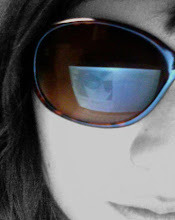Narrative structure, presents the reader/viewer with an ordered way to take in their piece. It is the standard and norm for traditional forms of media. Now the database is said to have a possible narrative structure as well. I guess it all depends on the person, since this topic can be debated. Let us compare them… they both can tell a story. If I have to explain how traditional media tells a story, then please stop reading here, I’m slow from time to time, but if you can’t tell how a story is a story… (cricket cricket) The database however, could be looked at differently. How can it be narrative if it is computer generated? Well as I see it, the database can become a narrative but with the help of a human. Through a search through the database the collection of information can sort of, speak out to a person. You can notice trends and relatable items that show narrative. The database does not spit out a story; you can’t go to the database and expect “Once upon a time” to be right in front of your face. You need to work a little. Both old media and new media allow the uses to interpret it and then make their own analysis of what is being presented to them. Some more differences, narrative is created and organized. The difference lies in the way people understand and use it. Narrative is created, structured and organized, which database is created and structured but it is not presented in an ordered and detailed list, as a story would be. Databases are not linear while most old medias are.
Databases rule me. It is so easy to just use a database to conduct any activity on line. I’m a googler, if I’m not sure about something or I’m bored I Google. I use databases blindly on a daily bases as do most of the Internet users of the world. However it has also become a tool to help generate my own media. When working on a project databases are a foundation to show or generate a direction I want to be going. Being able to research something I’m designing and being able to look up pictures when needed is a tool used quite often. On a music direction, when I set out to cover a song I go to You Tube to look up instrumentals of songs. I also see if other people have covered the song, see what I don’t like and grab inspiration from other videos. I search for song lyrics on Google.
Media generated by society at large uses databases as a religion. It’s a way to have ones media shown to the world. Using sites such as You Tube, Flicker and many more created an outlet for one to show others their media. Those who generate media are also using database to help construct their own projects. Using databases helps the creator research and build inspiration. It is also a lot quicker to use databases, back in the day you would have to be running through a library using that card index program they had, then sit down and read through information. Now you can just search for exactly what you want and long and short pieces of information will show up.
People can also organize data using metadata. When uploading your works, you can tag it using a description. Sometimes this is helpful to other users and will represent the great ways information can be organized. However there is a little bitsy itsy problema. What is something to one person might be something completely different to another. Say something is labeled “Fun Times” and it’s a person on a cliff diving adventure, one who is afraid of heights or water might not think it is fun times to be doing that activity and might think the word scary times, or death would be more appropriate. There is the ego evolved “me” tagging, who is me anyway? Me is me, not you, so why are you tagging the picture me? Haha One of my favorites is when people label a picture “me hot” or “me good” I’m sure you get the point. It’s funny but practicable. If you are putting in your pictures for your own use and you need to pull up a good picture of yourself “me hot” is helpful to your own organization. However to everyone else it is not so much, well maybe for Internet perverts… EW! Bottom line, sometimes it’s helpful for users sometimes it is not. If anything at least it gives a general direction, and for those who are super anal and give very proper tags to what they upload, well you will just maybe get what you are looking for.

